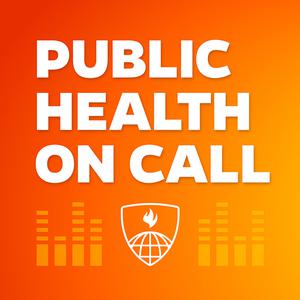
Public Health On Call
Johns Hopkins Bloomberg School of Public Health
- 14 minutes 15 seconds759 - Book Club: What If Fungi Win?
From mushrooms to microscopic organisms, fungi represent a serious—and still relatively unexplored—threat to human health. Dr. Arturo Casadevall returns to the podcast to talk about his new book, What If Fungi Win? which looks at why certain fungal infections take off, why they’re so hard to treat, and why we will most certainly see more of them with climate change and treatment-resistant strains. Learn more: https://www.press.jhu.edu/books/title/53673/what-if-fungi-win
15 May 2024, 10:00 am - 10 minutes 31 seconds758 - Homelessness and SCOTUS: What Happens When People Experiencing Homelessness Are Forced To Move?
Johnson v. Grants Pass, a case before the U.S. Supreme Court, raises the question of whether homelessness can be criminalized. Ashley Meehan, a doctoral student at Johns Hopkins, talks with Dr. Josh Sharfstein about the public health dimensions of this issue. They discuss her research looking into what happens to people after encampment sweeps and what policies would benefit not only people experiencing homelessness but their communities and cities as well. Listen to our previous episode on this issue: https://johnshopkinssph.libsyn.com/621-the-health-consequences-of-displacing-people-experiencing-homelessness
13 May 2024, 10:00 am - 16 minutes 15 seconds757 - How to Prevent Dengue or “Break-Bone Fever”
Dengue, or “break-bone fever”—a disease transmitted by mosquitoes that can cause serious fever, rash, muscle and joint pain and even problems with bleeding and shock—is surging around the world and popping up in new places like the U.S. Vaccine expert Anna Durbin returns to the podcast to talk with Stephanie Desmon about these trends and the general status of vaccines, treatments, and prevention. Learn more: https://publichealth.jhu.edu/2024/what-is-dengue-fever
10 May 2024, 10:00 am - 28 minutes 7 seconds756 - Electronic Cigarettes Part 2: How Serious are the Health Risks Associated with E-cigs?
More than a decade after electronic cigarettes became broadly available in the United States, their merits are still being debated. Do these products help people quit smoking? How serious are the health risks associated with these products? In a two-part series, we hear from two researchers in tobacco control about their views. In part two, Stan Glantz, the Truth Initiative Distinguished Professor of Tobacco Control at the University of California San Francisco talks with Dr. Josh Sharfstein about his research into the harms of electronic cigarettes and the dangers of "dual use" of electronic cigarettes and traditional cigarettes. In an epilogue, Public Health On Call audio producer Matt Martin talks with Lindsay Smith Rogers about his personal history of tobacco use – including his efforts to quit with electronic cigarettes.
Read Glantz’s paper in New England Journal of Medicine Evidence: https://evidence.nejm.org/doi/full/10.1056/EVIDoa2300229
Listen to part one of the series here: https://johnshopkinssph.libsyn.com/755-electronic-cigarettes-part-1-do-e-cigs-help-people-quit-smoking
8 May 2024, 10:00 am - 16 minutes 44 seconds755 - Electronic Cigarettes Part 1: Do E-cigs Help People Quit Smoking?
More than a decade after electronic cigarettes became broadly available in the United States, their merits are still being debated. Do these products help people quit smoking? How serious are the health risks associated with these products? In a two-part series, we hear from two researchers in tobacco control about their views. In part one, Dr. Nancy Rigotti, Professor of Medicine at Harvard Medical School talks with Dr. Josh Sharfstein about the use of e-cigarettes for smoking cessation.
Read her editorial in the New England Journal of Medicine: https://www.nejm.org/doi/full/10.1056/NEJMe2314977
6 May 2024, 10:00 am - 18 minutes 59 secondsBONUS - An Update on Bird Flu in the U.S.
Virologist Dr. Andy Pekosz and public health veterinary expert Dr. Meghan Davis return to the podcast to talk with Stephanie Desmon about what we’ve learned so far from viral sequencing of H5N1, its presence in milk, what we know about infections in humans, the status of the overall response to a major pathogen of concern on the heels of COVID-19, and more. Read Dr. Davis’s recent New York Times essay on protecting the dairy workforce here: https://www.nytimes.com/2024/05/01/opinion/bird-flu-dairy-workers.html
6 May 2024, 10:00 am - 17 minutes 58 seconds754 - A Public Health Emergency: Syphilis Surges in the Great Plains Region
An alarming and dangerous syphilis surge across the Great Plains Region, an area spanning North Dakota, South Dakota, Nebraska, and Iowa, has prompted tribal officials to urge HHS Secretary to declare a public health emergency. Dr. Meghan Curry O’Connell, chief public health officer at the Great Plains Tribal Leaders Health Board and a member of the Cherokee Nation, talks with Lindsay Smith Rogers about the outbreak and why public health officials are struggling to respond.
3 May 2024, 10:00 am - 19 minutes 35 seconds753 - The Health Care Crisis At the U.S.-Mexico Border Part 2: Border Walls and Traumatic Brain and Spinal Injuries
In part two of a two-part series about the crisis of health care for immigrants and refugees at the U.S.-Mexico border, Dr. Alexander Tenorio, a neurosurgical resident at the University of California, San Diego, talks with Dr. Josh Sharfstein about the influx of traumatic brain and spinal injuries his team has seen from people attempting to climb the border wall. They discuss the scope of the problem and the policies behind it, and why it often takes hours for victims to get critical care. They also talk about Dr. Tenorio’s personal connection to the situation as a first-generation American born to Mexican immigrants.
1 May 2024, 10:00 am - 13 minutes 50 seconds752 - The Health Care Crisis At the U.S.-Mexico Border Part 1: Children and Families
In part one of a two-part series about the crisis of health care for immigrants and refugees at the U.S.-Mexico border, Dr. Janine Young, a pediatrician at the University of California, San Diego, talks with Stephanie Desmon about the tenuous situation for children and families. More and more people are showing up at the border in poor health—dehydrated, malnourished, some severely injured and many traumatized—without any adequate care to meet them. They talk about the immigration policies that have led to a system ill-equipped to properly triage and treat the children and families seeking refuge in the U.S., and the misconceptions around people who are fleeing for their lives.
29 April 2024, 10:00 am - 17 minutes 11 seconds751 - The New Federal Regulations Aimed Making Methadone More Accessible—And Less Stigmatizing
Methadone is a highly effective treatment for substance use disorder but strict regulations like daily clinic visits have led to its nickname, “liquid handcuffs.” Dr. Yngvild Olsen, director of the Center for Substance Abuse Treatment at the Substance Abuse and Mental Health Services administration, talks with Lindsay Smith Rogers about new federal regulations that expand access to this life saving medication. They talk about how the COVID era showed that changes can make methadone much easier to prescribe and access, and how these updates are part of a critical cultural shift towards making substance use treatment more reasonable, equitable, and compassionate.
Resources for this episode:
26 April 2024, 10:00 am - 14 minutes 18 seconds750 - World Malaria Day: From Lab to Legislature—Meet the Scientists Taking on Capitol Hill in the Fight Against Malaria
World Malaria Day is April 25. Today, guest host Thomas Locke takes us to Capitol Hill where we meet malaria scientists who have joined an advocacy group to lobby members of Congress to fund critical interventions against malaria. They talk about their work and what scientific messages they bring to DC to impart on policy makers who play a major role in efforts to combat this preventable and deadly disease. This special episode is an extended version of Malaria Minute, a podcast from the Johns Hopkins Malaria Research Institute.
Learn more:
https://publichealth.jhu.edu/malaria-research-institute
https://publichealth.jhu.edu/events/2024/world-malaria-day-symposium
24 April 2024, 10:00 am - More Episodes? Get the App
Your feedback is valuable to us. Should you encounter any bugs, glitches, lack of functionality or other problems, please email us on [email protected] or join Moon.FM Telegram Group where you can talk directly to the dev team who are happy to answer any queries.
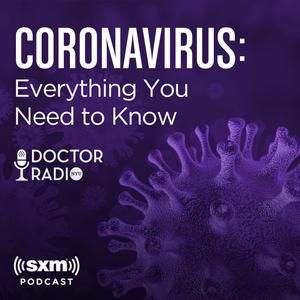 Coronavirus: Everything You Need to Know
Coronavirus: Everything You Need to Know
 The War in Ukraine Daily
The War in Ukraine Daily
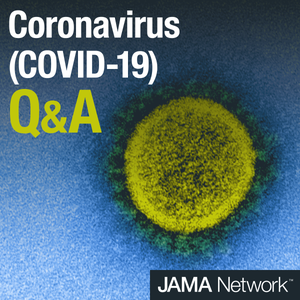 Coronavirus (COVID-19) Q&A
Coronavirus (COVID-19) Q&A
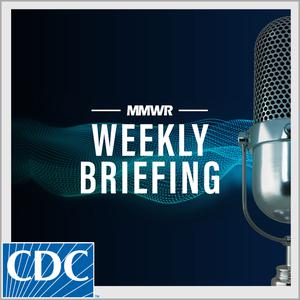 MMWR Weekly Briefing
MMWR Weekly Briefing
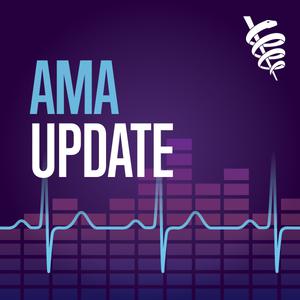 AMA Update
AMA Update
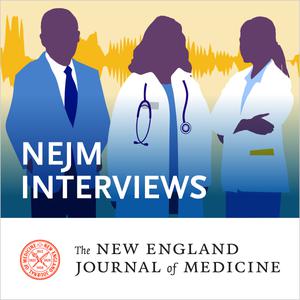 NEJM Interviews
NEJM Interviews